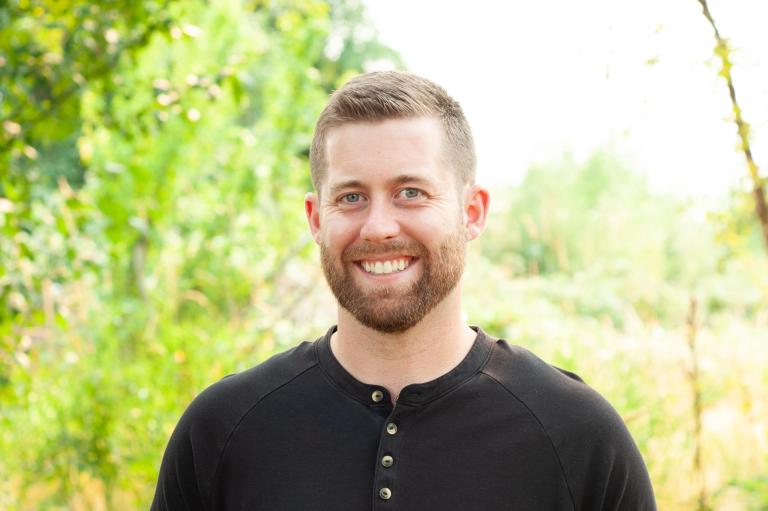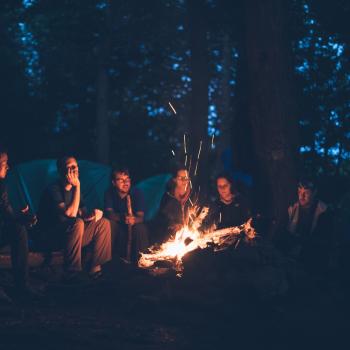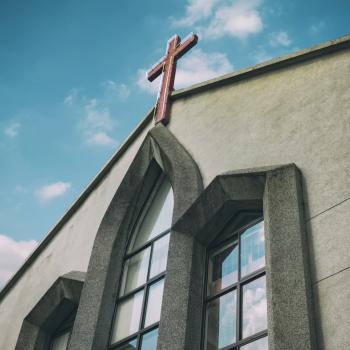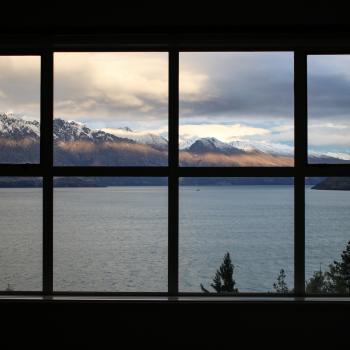
My favorite part of liturgy has always been communion.
When I was young, this was snack time – a communal agreement that what was needed in the middle of a long service was some grape juice, a bit of gluten, and a quick stand-and-stretch. If I was off adventuring through the building or playing in the gym with the other kids, I would race back to the sanctuary to partake in this holy event.
On typical communion weeks (we only had communion once a month), one of the church members would make the bread – it would be hard, chompy, and just fine. It contained carbs, so I was happy, but there never seemed to be unique personality to this offering. (Except for one week when someone decided to be bold and made a loaf of sticky rosemary olive bread – it was a mess.)
On the good weeks, however, nobody signed up to bring bread. This placed the responsibility of supplying it firmly on my Dad, meaning we were in for a special treat. Not one to bake bread at home, my dad’s burden meant communion was to be a delicious tasting of the most wonderful bread in the world for a child: King’s Hawaiian Bread. Jesus never tasted so good.
After the service, once the processional to the holy Hawaiian Bread had ended (I later referred to the communion line as the “penguin walk for Jesus”) and the final songs had been sung, I would prepare for action. Waiting in the back of the sanctuary until it was mostly empty, I would walk slyly up the side aisle to the altar, snatch what remained of the communion elements, and dash up the back steps onto the second floor, where I would partake in my second course of the holy eucharist.
Being the pastor’s son came with its benefits.
Choosing Community
But communion wasn’t just about snack time for me. It was also a felt experience of community, this large group of people coming together to reenact a story that was familiar, unchanging, and wonderfully weird. (It didn’t hurt that food was involved.)
In other words, just like any good ritual does, it provided a container for me in which to experience a small slice of what divinity is like: in relationship with others, freely available to everyone, and something to be held with honor.
It was around this age, I think I was 7 or 8, when I truly began to recognize a sense of belonging within the community. I felt a leadership role as I watched over some of the younger children while we played in the gym and before long, I was asking to be part of the church’s praise band. I didn’t yet care about theology or ideology – I just wanted to belong.
When I turned eight, I made the choice to make it official and requested to be baptized. Again, there were no theological reasons behind my desire that I can remember; I just knew that to choose community was to be baptized. It wasn’t as much a baptism into Christianity as it was a baptism into a specific church community. (And if I’m honest, it was probably a choice made to please my parents to some extent.)
To this day, baptism and communion are two of the most important Christian rituals for me. Intellectually, they have since been coated in theology, stripped of their mystery, broken down into pastoral tasks, and, most recently, reformulated in my mind as communal attempts to touch the beauty of the Divine.
Experientially, what I felt when I was young – a deep desire to belong – is what these two rituals remain centered on for me: marking one’s ongoing belonging not to a local church, although that’s good; not to institutional Christianity, although that’s fine; but to a mystery that we are part of Something Bigger Than Ourselves.
When I think of all the reasons I would later leave the church, baptism and communion were never on the list. These two sacraments remained vital because they were chosen and experienced by me at a deep level, beneath the words, the smells and bells, and all the blessings.
In the years that followed, I would discard the theology behind our praise music, become disillusioned by the spiritual apathy I felt from other church members, and experience a great sadness that the church community seemed to operate more like a group of Democrats with god-language than a countercultural space of spiritual embodiment.
But my sense of mystery around baptism, communion, and what it means to belong to the Universe – a member of “the family of things” as Mary Oliver liked to say – has remained.
During February, I’ll be exploring my own story with Progressive Christianity, with religion, and with my constantly evolving spirituality. It is a story from the gymnasium to the sanctuary, beyond the walls of institutionalized religion (and sometimes back again), always falling deeper into my own experience and relationship with the Divine. If you’d like to read it in order, you’ll find them on the blog’s home page.













